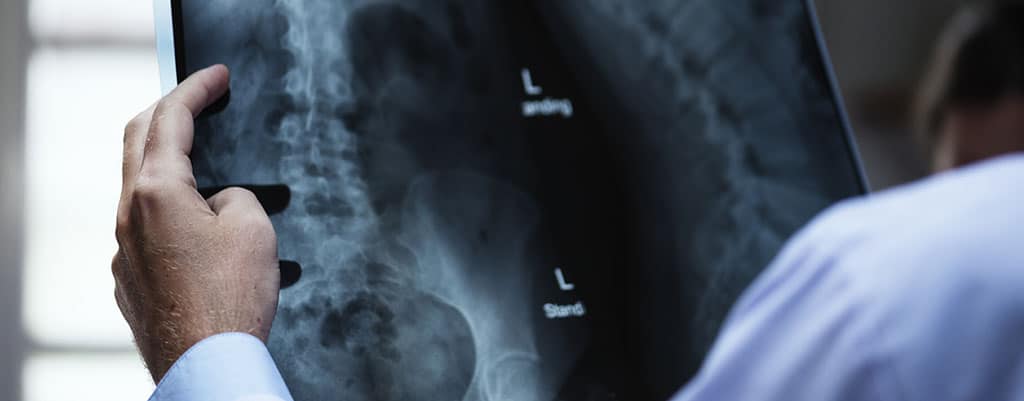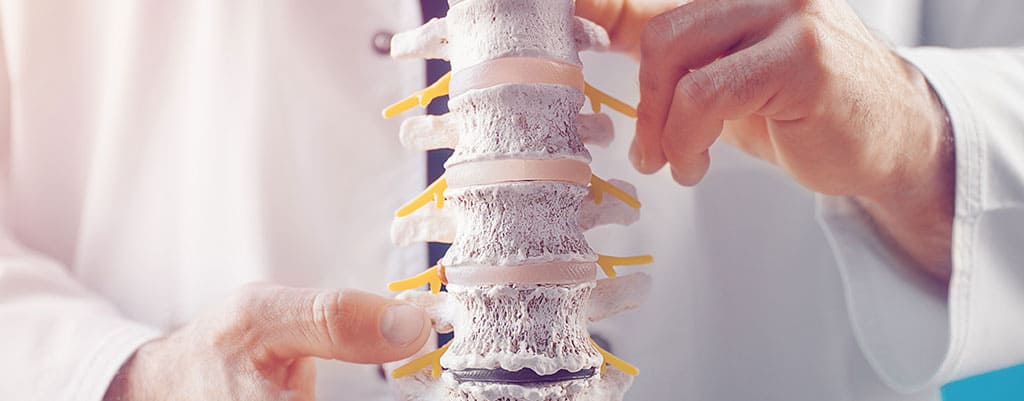If you’ve been suffering from back pain, you may be wondering to yourself “How did I get so lucky?”. While it could simply be from your daily activities there is a chance that the back pain you’re experiencing is genetic.
All of us are acutely aware that heredity plays a significant part in our health and proclivity to acquire a variety of illnesses. Back pain, on the other hand, has become so widespread that the possibility that it is genetic rarely enters the thoughts of the vast majority of people. The reality of the matter is that genetics may indeed play a role in some instances. While other variables such as the environment and physical characteristics have an influence as well, researchers are increasingly revealing that genes play a huge role as well, notably in two key areas: degenerative disc disease and pain perception.
When it comes to good spine alignment, we know how important it is. At the Spine Institute of San Diego, we want to help you become aware of any issues that may be causing you back pain so that you may treat them properly and avoid them from recurring. By reading this blog, you will learn more about hereditary back pain, how to improve it, and how to avoid it from repeating in the future.
Is Back Pain a Result of a Genetic Disorder?

We get this question quite frequently and it is one of the most common ones that our surgeons are asked by our patients: “Is my back discomfort a consequence of a hereditary illness that I am experiencing?” and we’re here to warn you that it’s possible that it has something to do with a genetic condition that you’re unaware of.
While it is possible to have back discomfort for a number of different causes. Perhaps you were involved in a vehicle accident or had an injury while exercising. Or maybe you’re dealing with a problem such as spinal stenosis, degenerative disc disease, or a herniated disc that requires your attention.
Whether your back discomfort is the consequence of a medical condition rather than an accident or injury, you may question if the disease is hereditary or acquired. According to some research, there may be a link between back discomfort and a family history of the condition.
New Study has Shown a Link Between Back Pain and Genetics
According to a recent study done by experts from the University of Utah, those who have an immediate family member who suffers from disc-related lower back pain are four times more likely to suffer from low back pain themselves. One of the most prevalent causes of persistent low back pain is disc damage.
A hereditary component to herniated or degenerating discs may be traced back to 2nd and 3rd degree relatives. Finding out whether any members of your close family–parents, siblings, or children–have persistent back pain or difficulties is crucial in determining whether this could be the cause of your back pain. If you come to the conclusion that your immediate family has experienced similar back pain causes there is a chance that with this genetic relationship, your chances of developing persistent back pain are increased.
What is Degenerative Disc Disease?

A prevalent cause of low back and neck discomfort, degenerative disc degeneration is also one of the most misunderstood conditions in which to seek treatment. Up to 85 percent of the people over the age of 50 in the United States will exhibit evidence of the illness. Moreover, further investigation has shown a strong relationship between family history and the development of this illness.
For the unfamiliar, degenerative disc disease refers to symptoms of back or neck discomfort that are caused by the gradual degeneration of a spinal disc. The symptoms of degenerative disc disease might include weakness, numbness, and hot, shooting sensations in the arms or legs in certain instances (radicular pain). Degenerative disc disease is characterized by low-level chronic pain that is interspersed with periods of more acute discomfort. The soft, spongy discs located between the vertebrae are critical for absorbing stress, cushioning nerves, and keeping pain at bay. They are situated between the lumbar and cervical vertebrae. Over time, these discs degrade and may lose a considerable percentage of their capacity to provide shock absorption. Most often, the consequences of this are felt in the lumbar area, although they may be felt anywhere in the back and neck, including the shoulders.
The Perception of Pain and Genetics
One perplexing aspect of degenerative disc disease, and even herniated discs, is the degree of pain they cause or do not cause, depending on the individual. Some patients are just more adversely affected than others in terms of their health. Genetics may not only have a part in who gets the disorder, but it may also play a factor in how responsive we are to pain. It is important to note that for those who have a genetic predisposition to pain, it is not only lower back problems that are at issue. Instead, these patients will find themselves more susceptible to a wide range of unpleasant diseases as a result of their treatment.
Strategies for Managing Genetic Back Pain
While you may not be able to control your genetic makeup and avoid back pain at all times, you may reduce the severity of it by following these guidelines.
Exercise
Contrary to common assumption, physical exercise may actually be beneficial in the treatment of back pain rather than detrimental. Put forth your best effort to get in at least 30 minutes of physical activity every day. You do not need to complete a marathon or lift large weights. In fact, you should avoid high-impact workouts like running and jumping and instead choose low-impact choices like yoga, pilates, swimming, and strolling.
Pain Relievers Available Over-The-Counter
Taking an over-the-counter pain reliever such as ibuprofen may be effective if your back pain is more severe than normal. You may get the respite you need from these medications, even if they will not heal your condition. It is important to remember that over-the-counter medications should only be used in moderation and are not a permanent solution to your condition. Our experts are highly experienced in diagnosing and providing accurate treatment options for your back pain.
The Use of Hot and Ice Therapy
The use of heat and ice treatment is a simple method of obtaining relief from back discomfort. Every hour, you should apply ice and heat to your back for approximately 15 minutes at a time. Attempt heat or cold treatment using an ice pack or a hot water bottle to see which method is most effective. It’s possible that switching between the two will provide the best outcomes for you.
Physical Therapy
Physical therapy exercises may help you to stretch and strengthen your back, particularly if you do them on a daily basis and with consistency. A physical therapist can assess your condition and provide a treatment plan that is specific to your needs in order to alleviate your discomfort.
How to Prevent Back Pain from Occurring?

What you do now may have an impact on whether or not you suffer from back pain in the future. It is necessary to evaluate genetic components in order to take efforts to avoid issues from occurring. We can assist you in preventing posture-related back discomfort by doing a postural examination and providing education regarding the condition.
It is also vital to think about how you exercise and whether or not you are really exercising properly. A sedentary lifestyle might result in the weakening of your primary back muscles. Your core muscles are some of the most essential muscles in your body because they help you maintain the stability you need. Back injury and discomfort may be caused by unbalanced exercise regimens or physical work, such as inappropriately lifting large items, among other things. If your back pain has been diagnosed as hereditary pain, our spine specialists can assist you in developing an effective preventative strategy to keep you healthy and active.
Therapy for Genetic Back Pain in San Diego
Regardless of one’s genetic makeup, there are still steps that patients may take to mitigate the impact of illnesses such as degenerative disc disease and arthritis. Chiropractic adjustments and massage therapy are two of the most effective treatments available for relieving pain and restoring range of motion. Pain management techniques such as acupuncture, which are particularly effective for people suffering from chronic pain illnesses such as fibromyalgia, have been demonstrated to consistently lower the incidence of pain.



